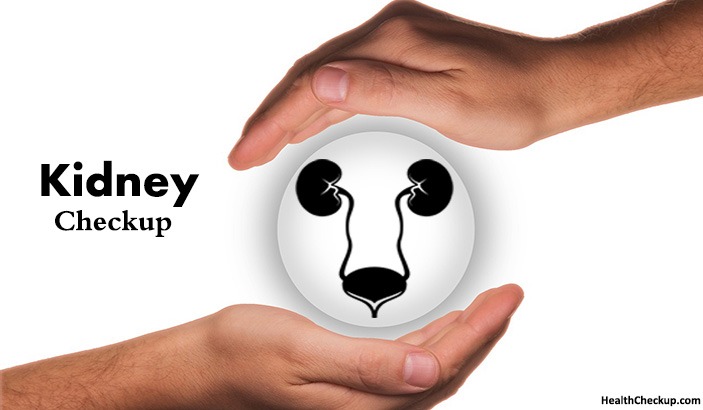Do you know that there are millions of people all over the world who are suffering from kidney diseases And, there are thousands of others who are on the verge of getting kidney disease and don’t know about it. They are sitting on a virtual time bomb that may explode anytime. Today, the need of the hour is to take a kidney health check up so that the disease is diagnosed as soon as possible and treated at an early stage before it develops other complications.
Healthy kidneys remove wastes and excess fluid from the blood. Blood and urology tests show how well the kidneys are functioning. These tests can show how quickly the body wastes are being removed and eliminated, and also if the kidneys are removing abnormal amounts of protein. Although early kidney disease displays no symptoms, it is easy for doctors to detect it. A simple blood test can check whether your kidneys are working properly.
The following Kidney Health Check up Tests are the Most Commonly Recommended Ones to Check for Kidney Disease:
1. Blood Tests for Kidney Health Check Up
Albuminuria-to-Creatinine Ratio (ACR)
Albuminuria or albumin in the urine occurs when there are higher amounts of a type of protein called albumin in the urine – this is a common indication of kidney damage. The ratio of albumin-to-creatinine is said to be the best method to determine albuminuria. All patients with chronic kidney disease should undergo this urology test for albuminuria at least once a year. They should also get tested if they are at risk for kidney disease – meaning people with diabetes or high blood pressure. People with a family history of diabetes, high blood pressure or kidney failure come in the high-risk category.
Glomerular Filtration Rate (GFR)
GFR is calculated from the results of a blood-based creatinine test. It is an indication of how well the kidneys are functioning, i.e., removing wastes from your blood. GFR is calculated using the serum creatinine and other personal factors such as age and gender. In the early stages of kidney disease, the GFR may be normal. A GFR number of less than 60 is low and may be indicative of kidney disease. People in the high-risk category should get this urology test test done at least once a year, so that if they have early kidney disease, it can be treated right away. Kidney disease should be treated at the earliest to keep it from getting worse.
Serum Creatinine
Creatinine is a waste product that is produced due to the normal wear and tear on the muscles of the body. Creatinine levels in the blood can vary depending on age, sex, and body size. A Serum creatinine level of greater than 1.2 for women and greater than 1.4 for men may be an early indication that the kidneys are not functioning properly. The level of creatinine in the blood rises, if the kidney disease worsens.
Blood Urea Nitrogen (BUN)
Urea nitrogen is produced from the breakdown of protein in the foods that we eat. A normal BUN level can be said to be between 7 and 20. As the kidney function decreases, the BUN level rises.
2. Imaging Tests
Ultrasound
Ultrasound test is a kidney health check test that uses sound waves to get a picture of the kidney. It may be used to look for abnormalities in the size or position of the kidneys, or for obstructions such as stones or tumors.
CT Scan
This imaging test uses contrast dye to capture the picture of the kidneys. It may also be used to look for structural abnormalities and the presence of obstructions.
3. Kidney Biopsy
A biopsy is another kidney check up test that may be done for any one of the following reasons:
- To identify a specific disease and determine whether it can be treated
- To evaluate the quantum of damage that has occurred in the kidney
- To study the feasibility of a kidney transplant
4. Urine Tests
Kidney health check up can also be done through certain urine tests. While some urine tests may require only a couple of tablespoonfuls of urine, other tests require collection of the urine produced for a full 24 hours. A 24-hour urine test shows the quantity of urine produced by your kidneys in one day. This urology test also gives an accurate measurement of the protein given out by the kidneys into the urine in one day.
Urinalysis
This urology test includes microscopic examination of a urine sample and a dipstick test. The dipstick is a chemically treated strip, which is dipped into a urine sample. The strip changes color if abnormalities such as excess amount of protein, blood, pus, bacteria, and sugar are present. The urinalysis also detects a variety of kidney and urinary tract disorders, such as chronic kidney disease, diabetes, bladder infections, and kidney stones.
Urine Protein
This urology checkup test may be done as part of a urinalysis or by a separate dipstick test. If an excess amount of protein is found in the urine, it is called proteinuria.
Microalbuminuria
This is a very sensitive dipstick test that can detect even a tiny amount of protein called albumin in the urine. People in the high-risk category of developing kidney disease, should take this test if their normal dipstick test for proteinuria is negative.
Creatinine Clearance
A creatinine clearance test is a urology test that compares the creatinine in a 24-hour sample of urine to the creatinine level in the blood and shows how much blood the kidneys are filtering out each minute.
Why Should you Have a Kidney Test?
People who are at risk of kidney disease should discuss with their doctor how often they should have a kidney health check up. People having kidney disease should get it diagnosed when the disease is still at an early stage. The treatment can be effective if the treatment starts early.
It should be remembered that treatment of a mild kidney disease can slow down kidney damage and delay the need for kidney dialysis or a kidney transplant. This can be done effectively with changes in lifestyle and medicines. Early detection and treatment of kidney disease reduces the chance of it leading to complicated heart diseases.
Who Needs a Kidney Test?
People who suffer from the following problems are advised to see their doctor for a kidney health check up
- Diabetes
- High blood pressure
- Blood or protein in the urine
- Cardiovascular disease
- Kidney stones
- Enlarged prostate
People Who Already have a Kidney Disease are Advised to See their Doctor if:
- They produce more or less urine than usual
- They feel more tired than usual
- They experience loss of appetite
- If they experience shortness of breath
- If they have not been feeling well for a few days
Medically Reviewed By









